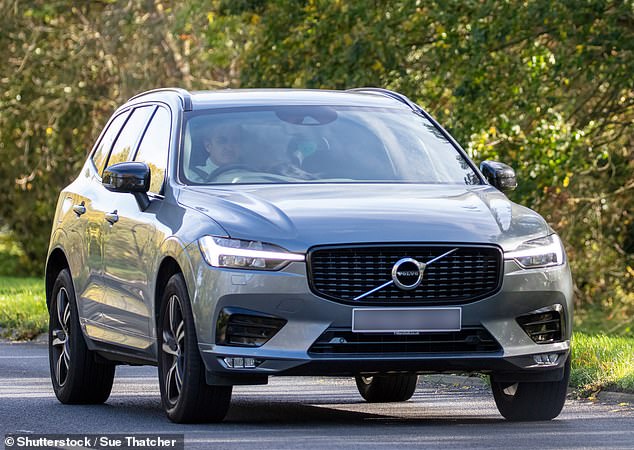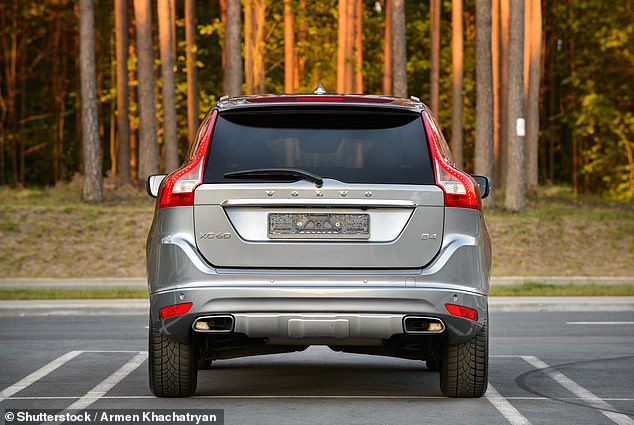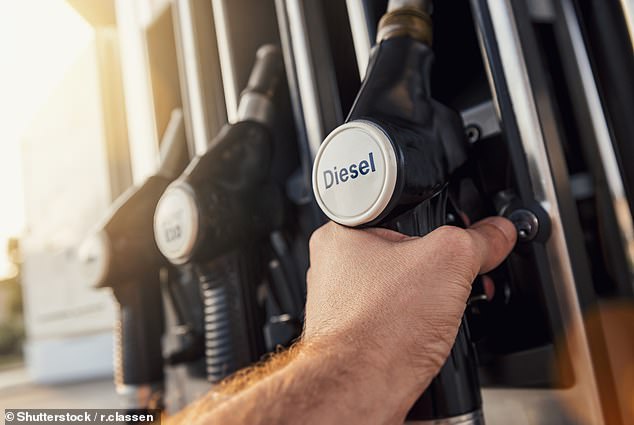Volvo to end production of diesel cars within months – but has already ditched them from its UK line-up
Swedish car giant Volvo confirmed this week that it will end production of diesel models in early 2024 as it moves towards becoming a fully electric brand.
“In a few months, the last diesel-powered Volvo car will have been built, making Volvo Cars one of the first traditional car manufacturers to take this step,” the Swedish company said in a statement.
While other countries can get their hands on a new diesel Volvo between now and the start of the new year, the British will struggle to get their hands on one today.
That’s because all diesel engine options have already been dropped from the automaker’s vehicle lineup.
Volvo has confirmed it will be the first ‘legacy’ carmaker to end production of diesel cars early next year. But the British will have difficulty getting their hands on a new diesel Volvo just yet…
Volvo, which is largely owned by the Chinese Geely, drew a line in the sand in 2021 with the promise to drive fully electric by 2030.
However, since then the company has gradually reduced diesel engine options across its increasingly thinner model range.
While the majority of cars Volvo sold in Europe in 2019 were diesel cars, in 2022 they would only account for 8.9 percent of total sales.
In August, 33 percent of Volvo sales were fully electric or hybrid models.
However, the company did not reveal how many of the remaining 67 percent combustion engine models were diesel and how many were gasoline.
And while customers in other markets may still be able to get their hands on the latest batch of diesel Volvos, the British won’t.
According to Coachthe Swedish company quietly removed the last diesel models from its British range at the beginning of September.
It means Volvo buyers can now only get their hands on a fully electric, plug-in hybrid and mild-hybrid petrol model.
The brand made its announcement about phasing out diesels during Climate Week NYC on Tuesday.
It came a day before Rishi Sunak confirmed he will delay the ban on the sale of new petrol and diesel cars from 2030 to 2035 by five years.
Now that the deadline has been postponed, this means that Volvo is eleven years ahead of the ban on new diesel cars.

Autocar says Volvo has already removed all diesel powertrain options from its UK range at the start of this month, meaning fans of oil-burning cars will have to look elsewhere
“Electric powertrains are our future and superior to combustion engines: they generate less noise, less vibration, lower maintenance costs for our customers and no tailpipe emissions,” said Jim Rowan, general manager.
“We are completely focused on creating a broad portfolio of premium, fully electric cars that offer everything our customers expect from a Volvo – and are an important part of our response to climate change.”
Volvo’s announcement comes just a month after the company confirmed it has axed all saloons and estates from its UK car range.
In a statement to This is Money, Volvo said: ‘We continue to rapidly transform our product offering, which means not only moving towards full electrification, but also new platforms and technologies for all our cars.
“We will obviously have to evolve and consolidate our offering as we prioritize fully electric cars and make this technological transition.
‘As a result, we have removed further models from the UK range. This includes the S60, V60 and V90.’
In a tweet, the company added: ‘Saloons and estates will still be available to police and other emergency services across Britain.’
Since spacious estate cars have been the brand’s bread and butter for generations, the decision is likely to confuse some Volvo enthusiasts.

Volvo’s announcement comes just a month after the company confirmed it had axed all sedans and estates from its UK car range and will now only sell SUV models. However, none will come with a diesel engine

Volvo made its announcement on Tuesday during Climate Week NYC, a day before Prime Minister Rishi Sunak confirmed the postponement of the ban on the sale of new petrol and diesel cars from 2030 to 2035. Now that the deadline has been pushed back, Volvo is anticipating the ban on new diesel cars by 11 years
The decision was made because the company wants to ‘prioritize fully electric cars’, increased demand for larger SUV models and declining interest in more traditional vehicle segments.
Speaking this week, the company said it has gone “all in on electrification because it’s the right thing to do” due to the “urgency of the climate crisis.”
Rowan added: “What the world needs now, at this critical time for our planet and humanity, is leadership.
“It is high time that industry and political leaders are strong and decisive and take meaningful policies and actions to combat climate change.
“We are committed to doing our part and encourage both our colleagues and political leaders around the world to do their part.”
Sales of diesel models have fallen rapidly in Europe since Volkswagen’s emissions cheating scandal, and carmakers have gradually reduced the number of diesel models available in their model ranges.
Diesel vehicles accounted for more than 50 percent of new car sales in Britain a decade ago, but have accounted for just 8.8 percent so far in 2023 (to the end of August).
Some links in this article may be affiliate links. If you click on it, we may earn a small commission. That helps us fund This Is Money and keep it free to use. We do not write articles to promote products. We do not allow a commercial relationship to compromise our editorial independence.
